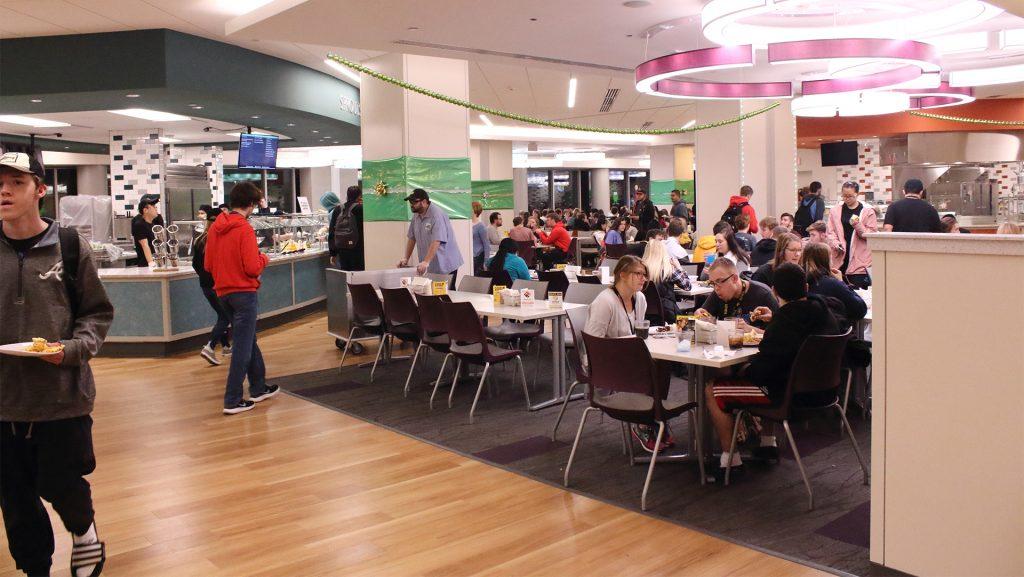On Monday, University of Iowa students may have noticed something different at the dining halls. As part of the theme semester “Climate for Change,” the University of Iowa Student Government and Office of Sustainability came together to create Meatless Mondays.
The idea, which tries to provide meat-free options for students every first Monday of the month, originated from Abigail Simon and Sarah Henry, both UISG senators on the Sustainability Committee.
“Abby and I originally started working on bringing Meatless Mondays to UI when we went to UISG’s fall retreat and spoke to Director of Dining Jill Irvin,” Henry said. “[Irvin] spoke about dining’s sustainability efforts, which formed an impressive list of composting, recycling, and local produce. We found there was a gap in efforts when it came to the actual types of food dining purchased and served.”
According to the nonprofit group Meatless Mondays, livestock is responsible for 15 percent of greenhouse-gas emissions. Greenhouse gases trap the heat in the planet’s atmosphere. Simon said there are many reasons students choose to eat vegetarian or vegan, but she stressed the idea of how detrimental meat is to the Earth.
“Raising livestock for meat consumption creates many negative impacts on our environment,” Simon said. “Meat production uses nearly a third of the Earth’s land surface.”
Simon and Henry partnered with the Theme Semester Planning Committee for the Meatless Monday project. Jordan Brown, the program coordinator for the theme semester, said the idea was the right fit.
“Our office thought it was a perfect match to partner with the Office of Sustainability to help promote, advertise, and advocate for the initiative,” Brown said. “The Office of Sustainability works hard to support sustainable initiatives across our campus on this important issue to help secure ongoing support for this unique opportunity for students.”
Henry and Simon said they have worked with University Housing & Dining Executive Chef Barry Greenberg and Dining Director Irvin and other Housing & Dining staff to discuss logistics of the initiative.
With the idea of cutting out the most popular protein choice, many people have expressed concerns to Henry and Simon about proper nutrition for students.
“Plant-based diets are nutritionally sufficient and may also reduce the risk for many chronic illnesses,” Simon said. “We aren’t encouraging students to become vegetarians or vegans but rather encourage them to make more sustainable food decisions when eating.”
Meatless Mondays have reported that going meatless once a week may reduce people’s risk of chronic preventable conditions such as cancer, cardiovascular disease, diabetes, and obesity. Not just helping with health, going meatless on Mondays can reduce people’s carbon footprints and save such resources as fossil fuels and water.
Simon said the dining halls will still provide meat; the purpose of the initiative is to encourage students to look at the environmental cost of meat.
A carbon footprint is the amount of carbon dioxide and other greenhouse gases emitted into the atmosphere by consuming fossil fuels— Meatless Mondays can help reduce carbon footprints, Simon said.
Another Big Ten school, the University of Michigan, stated in a report that meat contributes to 47.6 percent of greenhouse-gas emissions.
Brown said everyone has been supportive of the theme semester in a variety of ways, and the contribution from Simon and Henry to incorporate Meatless Mondays has been great.



